Alexia Moreno
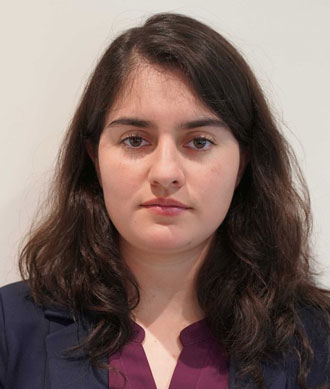
Alexia Moreno is a senior at the University of Maryland majoring in Public Health Science. She hopes to gain a well- rounded exposure and learning opportunities during her internship at the Maryland Center for Developmental Disabilities (MCDD). She is looking forward to learning more about the healthcare system, as well as practice and advocate for individuals with disabilities. After completing her undergraduate degree, Alexia Moreno plans to attend nursing school where she can continue to work and advocate for people with disabilities and their families.
Kayla Velez
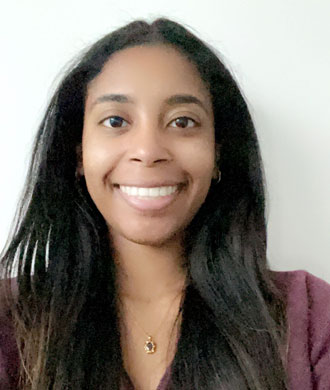
Kayla Velez is a senior at Towson University majoring in Public Health. Kayla Velez developed an interest in people with disabilities from taking courses on adaptable instructional teaching methods for all people. She hopes to gain a well-rounded exposure and learning opportunities during her internship at the Maryland Center for Developmental Disabilities (MCDD) by participating in several of the MCDD’s projects including the Community and Professional Development Training program. She is looking forward to learning how to translate scientific evidence into practice and effectively advocate for individuals with disabilities while building on her knowledge of health education. After completing her undergraduate degree, Kayla Velez plans to receive her CHES Certification and complete her Program Management Certification to lead and advocate for people with disabilities and their families.
Sharon Oladipupo
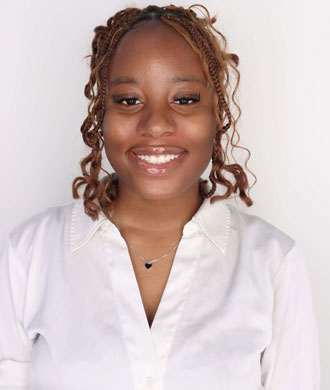
Sharon Oladipupo is a senior at Towson University majoring in public health with a minor in family and human studies. Sharon developed an interest in people with disabilities from a job experience. She hopes to gain a well-rounded exposure and learning opportunities during her internship at the Maryland Center for Developmental Disabilities (MCDD) by participating in several of the MDCDD’s projects including the community and professional development training program. She is looking forward to learning how to translate scientific evidence into practice and effectively advocate for individuals with disabilities while building on her knowledge of health education. After completing her undergraduate degree, Sharon plans to attend graduate school for Nursing where she can continue to work and advocate for people with disabilities and their families.
Rosaline Owusu, MSN, FNP-BC
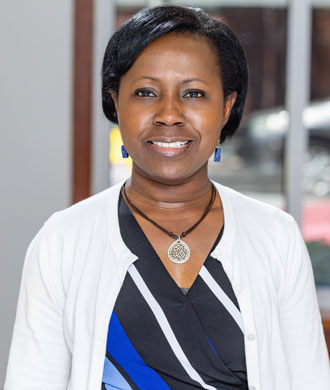
Rosaline Owusu is currently a Wendy Klag Center (WKC) scholar and third-year dual degree student pursuing a Master of Public Health and Doctor of Nursing Practice (MPH/DNP) at Johns Hopkins University Bloomberg School of Public Health and Johns Hopkins School of Nursing. Rosaline completed her undergraduate degree in nursing at Pennsylvania State University and gained five years of experience in an acute care setting before pursuing her master’s in nursing at the University of Pennsylvania, where she focused on family health. With over 13 years of experience as a dedicated family nurse practitioner, she has primarily worked in the primary care setting, providing care for diverse populations across their lifespans. In the past 3 years, Rosaline has expanded her expertise by focusing on analyzing and applying policies to address health disparities in populations with developmental disabilities. Her current research emphasis is on addressing the transitional needs of racially/ethnically minoritized autistic youth through policies aimed at eliminating barriers and improving the quality of life and well-being for this population and all youth with developmental disabilities.
Saliha Sheikh
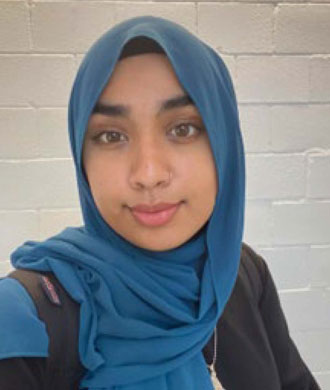
Saliha Sheikh is a junior majoring in Public Health Science at the University of Maryland, College Park. Saliha’s interest in developmental disabilities emerged from her studies of health inequity and its intersection with health policy. Through her role as an MCDD intern, she aims to deepen her understanding of resource distribution and policy implementation impacting individuals with disabilities. Following the completion of her undergraduate degree, she hopes to pursue her Master of Public Health (MPH) with a focus on health policy or a related field. Her goal is to work in public health to address healthcare inequalities and enhance advocacy efforts.
Yomyra Villatoro
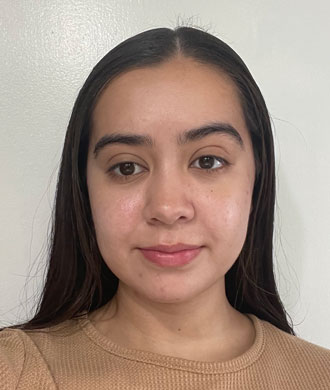
Yomyra Villatoro is a senior at the University of Maryland, College Park, majoring in Public Health Science. Her passion for advancing healthcare in underserved communities has driven her interest in working with individuals with disabilities. During her internship at the Maryland Center for Developmental Disabilities (MCDD), Yomyra looks forward to gaining comprehensive exposure by participating in various MCDD projects, including the Community Engagement and Professional Development Training program. She is excited to learn how to translate scientific evidence into practice and become a more effective advocate for individuals with disabilities. After completing her undergraduate degree, Yomyra plans to pursue a graduate degree and become a medical doctor focusing on health equity, with the ultimate goal of improving healthcare outcomes for vulnerable populations.
